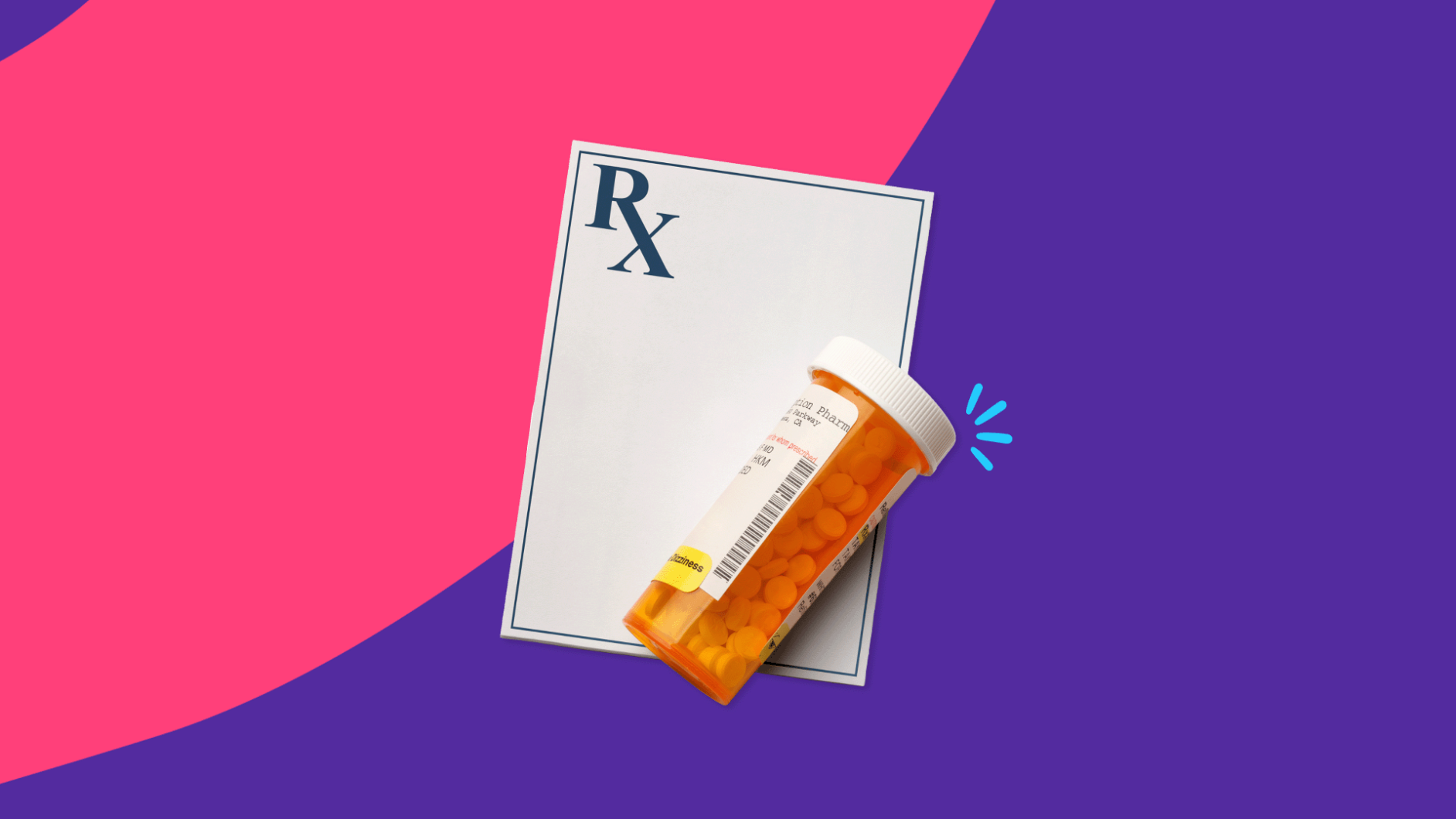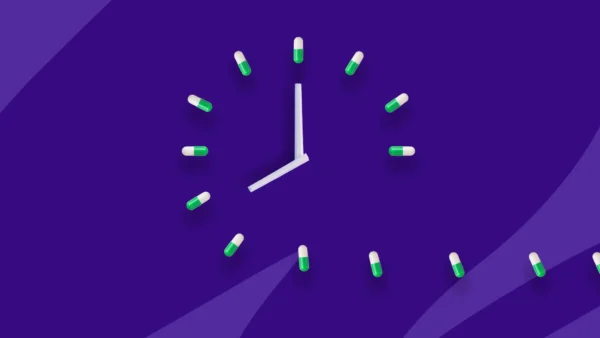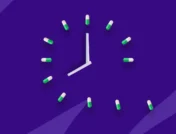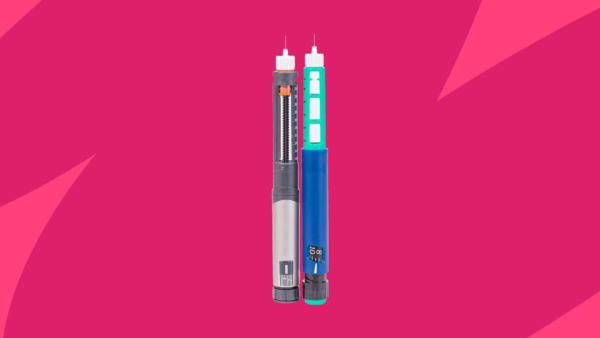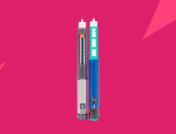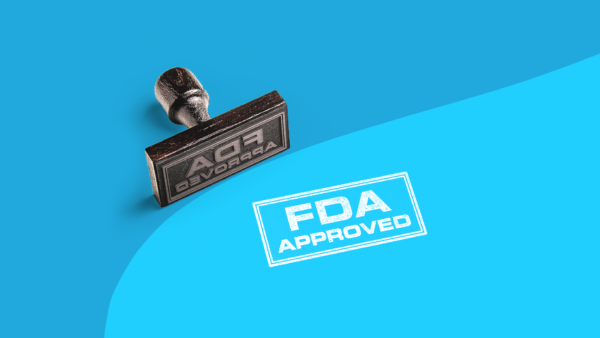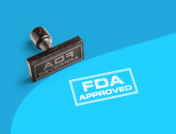Propranolol is an old drug that just won’t go away, for good reason. It touts a 50-year history of utility, originally as a treatment for heart disease and later as a preventive treatment for migraine, a use that has landed it on the World Health Organization’s list of essential medications. A role for propranolol that you may find more interesting is in the treatment of anxiety. Effective in a limited number of clinical studies, propranolol’s proclivity for helping the physical signs of anxiety is a topic that you should learn more about.
What is propranolol (Inderal, Hemangeol)?
Propranolol, also known by its brand name Inderal, is one of the patriarchs of the beta blocker class of drugs. It blocks both type 1 and 2 beta-adrenoreceptors. Hence it is characterized as a non-selective beta blocker. Blocking beta receptors, propranolol’s activity in the peripheral circulation results in lower blood pressure and slower heart rate.
Consequently, it has Food and Drug Administration-approved uses for hypertension (high blood pressure), angina, supraventricular tachycardia, atrial fibrillation, and pheochromocytoma, an adrenaline-secreting tumor. Hemangeol, another brand-name version, is indicated for the treatment of infantile hemangioma, an abnormal, congenital mass of blood vessels.
The unique ability of propranolol to cross the blood-brain barrier allows it to engage the central nervous system (CNS). Besides blocking beta-adrenoreceptors, propranolol may weakly stimulate alpha-1 adrenoreceptors and antagonize certain serotonin receptors, actions that could be relevant in the CNS. These mechanisms may partly explain why propranolol has FDA indications for essential tremors and prevention of migraine headaches. The drug does not have FDA approval for anxiety treatment.
Propranolol for anxiety
Both peripheral circulatory and central nervous system effects could contribute to the therapeutic action of propranolol for physical anxiety symptoms. Much of the discomfort of anxiety is related to physical reactions, namely a racing heart, elevated blood pressure, and shakiness, rather than just the psychological symptoms of anxiety. Physical symptoms of panic disorder, panic attacks, and situational anxiety related to events like public speaking can largely be explained by the surge in the effects of adrenaline. Propranolol’s beta-adrenergic receptor blockade and other receptor activity could explain how it helps these symptoms. Its rapid absorption after being taken and the onset of action within 1-2 hours is certainly a plus as well.
In particular, a number of subsets of anxiety have shown promising improvement with propranolol therapy. The medication may be beneficial for post-traumatic stress disorder (PTSD) by influencing the reconsolidation of traumatic memories. Another example, stage fright, has been alleviated by propranolol in clinical trials. A reduction in stage fright’s physical effects is likely at the heart of the improvement, but in a study of chronic anxiety, propranolol relieved both physical and psychological symptoms of anxiety in most participants.
Keep in mind that there is insufficient evidence of the efficacy of propranolol for anxiety, and selective serotonin reuptake inhibitors (SSRIs) along with cognitive behavioral therapy remain first-line treatments for most anxiety disorders, particularly when long-term need is present. Benzodiazepines are a common option for short-term use on an as-needed basis, albeit an option with habit-forming potential. Interestingly, a systematic review did not find a significant difference in outcomes for panic disorder between benzodiazepines and propranolol.
Propranolol side effects
Now that you know the effects of propranolol on the cardiovascular system, such as slowing heart rate and lowering blood pressure, and the CNS as well, you can understand why it can have the following list of common side effects. Of note, the possibility of nausea and less appetite typically means that there is not a significant risk of weight gain with the drug. Also, the possibility of depression from propranolol is something to take seriously, given the common co-occurrence of anxiety and depression symptoms. The potential side effects include:
- Hypotension (low blood pressure)
- Bradycardia (slow heart rate)
- Dizziness
- Fatigue
- Weakness
- Impotence
- Nausea
- Depression
At worst, propranolol can have severe side effects, so you should be aware of the following possibilities:
- Congestive heart failure
- Heart block (electrical conduction abnormality of the heart)
- Bronchospasm (wheezing)
- Difficulty breathing
- Severe rashes
- Raynaud phenomenon (circulatory problem affecting the tips of fingers and toes)
You can make taking propranolol a safer proposition by following some basic guidelines. For one, you should be consistent with your dosing, not stop the medication suddenly, and get the medical advice of your healthcare provider before trying off the drug. Failure to slowly taper off the medicine can put people at risk of withdrawal symptoms such as tachycardia (fast heart rate), angina (chest pain), and heart attack. Dietary and lifestyle habits can also play a part when taking propranolol. A high-protein diet can increase drug levels, while smoking and caffeine can decrease the drug’s effectiveness.
Who should not take propranolol for anxiety?
It makes sense, based on the lists of common and serious side effects, for certain individuals to avoid propranolol. The contraindications, or reasons to avoid taking the drug, include having asthma or heart problems like decompensated heart failure and heart block. Seniors and anyone with peripheral vascular disease, kidney disease, liver disease, or diabetes should be cautious about this med. Diabetes makes that list because beta blockers like propranolol can mask the warning signs of hypoglycemia or low blood sugar. It is a good idea to discuss your medical history, including all existing conditions and current medications, with a healthcare professional before starting a new treatment.
Propranolol dosages for anxiety
Because use of propranolol for anxiety amounts to off-label use of the drug, there are no standardized dosing regimens. In fact, evidence to support propranolol’s use and dosing for anxiety is lacking.
Dosing instructions may depend on the particular situation and rely on the healthcare professional’s experience and expertise. For instance, performance anxiety and stage fright are short-term anxiety conditions where a quick-acting and short-lasting prescription drug is preferable. A propranolol 40 mg tablet can be taken one hour prior to a performance. Conversely, chronic and social anxiety disorders may be best treated with a long-lasting formulation. Extended-release propranolol capsules, also available as the brand name product Inderal LA, can be started at 60 mg once daily, increased if needed, and tolerated under a healthcare provider’s direction.
The peak effects of short-acting propranolol can be felt within an hour or two and wear off within about 8 hours, whereas the long-acting version peaks at about 12 hours and loses effectiveness after 24 hours based on its lengthier half-life. Studies on PTSD treatment have used both formulations to reduce the consolidation of negative memories and their deleterious effects.
How much does propranolol cost?
Based on generic availability, the cost of propranolol is not outrageous, and most insurances include it in their preferred prescription medication formulary. Nonetheless, the cash price can range from about $40 for a one-month supply of generic propranolol to $70 for generic long-acting propranolol, and brand-name Inderal LA can be over $1000 per month. SingleCare offers coupons for all of these versions. Presenting your SingleCare discount card to your pharmacist can save you money on this medication. If you and your doctor agree that propranolol is a good fit for your anxiety treatment regimen, then the expense should not hold you back.



